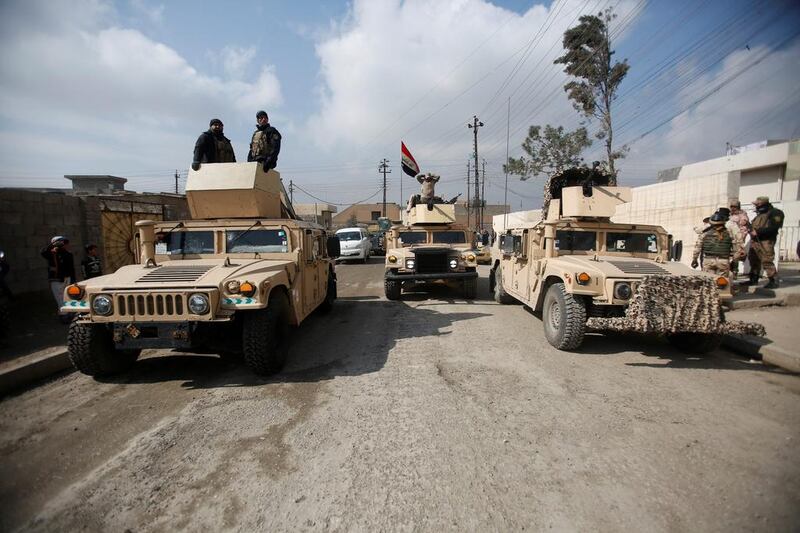National Editorial
This week, the Iraqi army pushed into western Mosul in a bid to flush ISIL militants from the city. Having liberated parts of eastern Mosul in an offensive last month, Iraqi forces are getting closer to driving ISIL from the city it has occupied since June 2014. Along with the Syrian city of Raqqa, Mosul is a major centre of operations for ISIL. That the militants are on the verge of losing their foothold in Iraq is clear evidence of their declining fortunes on the battlefields. But success against ISIL in Mosul will not constitute a death blow to extremism in Iraq. A greater challenge lies deep at the heart of the country’s political and social infrastructure: corruption.
Once the militants are flushed from key Iraqi cities, the rampant corruption that they exploited to take over the cities in the first place will still remain. “Corruption is a rallying cry, an enabler and a key modus operandi for ISIL,” Katherine Dixon, director of Transparency International Defence and Security, told the BBC.
Since the United States invasion of Iraq in 2003, the country has been in a state of near chaos. Vying for power and control, various sectarian groups have benefited from the disorganisation to advance their own goals. At the same time, large sums have poured into defence and civil society organisations from outside forces hoping to help Iraq return to stability. This money has largely been squandered, leaving civil society in a dangerously unstable condition for more than a decade. Such destabilisation has been fertile ground for ISIL and other extremist organisations to exploit as they marched across the country.
The Iraqi army, Transparency International notes, has thousands of paid soldiers who receive a salary but don’t show up for duty. When Mosul was invaded, the Iraqi army was mostly absent from the scene. Yet, the army has received incredible amounts of aid from outside countries.
There is no easy solution to the problem of corruption in any country, let alone one that has been ripped apart by conflict. But that doesn’t change the fact that militants have successfully taken advantage of the chaotic environment in which Iraqi state institutions are unable to function because of systematic corruption. As the fight for Mosul comes to a close, Iraq must prepare for a much greater battle in which success could be many years in the making. Success in the fight against corruption is one way to ensure the complete destruction of groups such as ISIL.





